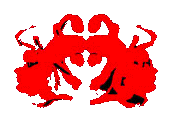|
Ψ Self-efficacy (Albert Bandura - Social Cognitive Theory) Your self-efficacy is how competent you feel to do something; your self-esteem is your sense of self worth, e.g. a skilled thief might feel high self-efficacy & low self-esteem.
Locus of Control
Ψ A locus of control orientation is a belief about whether the outcomes of our actions are contingent on what we do (internal control orientation) or on events outside our personal control (external control orientation)." (Zimbardo, 1985, p. 275)
Ψ In general, it seems to be psychologically healthy to perceive that one has control over those things which one is capable of influencing.
Ψ In simple terms, a more internal locus of control is generally seen as desirable. Having an Internal locus of control can also be referred to as "self-agency", "personal control", "self-determination", etc.
|

|
Ψ Research on locus of control has found the following trends:
• Males tend to be more internal than females.
• As people get older they tend to become more internal.
• People higher up in
organizational structures tend to be more internal.
Mamlin, N., Harris, K. R., Case, L. P. (2001). A Methodological Analysis of Research on Locus of
Control and Learning Disabilities: Rethinking a Common Assumption. Journal of Special Education,
Winter.
Learned Helplessness
Ψ External locus of control is related to Seligman's studies of Learned Helplessness (1970s) which found that animals & people will learn to simply give up trying when they experience loss of control over what happens to them. Thus, developing learned helplessness, when in a chronically deprived situation, is an adaptive response. However, if circumstances change for the better, learned helplessness (external locus of control) is maladaptive because the person doesn't know how to act when free.
Notes on Self-determination.
Ψ Studies confirm that systems of governing and/or managing people that promote personal control will promote health & happiness. (Deci & Ryan,1987)
Ψ To many choices can lead to paralysis, a "tyranny of freedom".
Ψ It has been found that people express greater satisfaction with irrevocable choices than with
reversible choices. Freedom to change your mind is not always a plus.
Notes
Ψ There is a power to positive thinking, on the other hand, if you tell yourself you can until you think you can, and then you fail, you have only yourself to blame. (bad outcome).
Ψ The dark side of high self-esteem: arrogance & retaliation when threatened.
Social Psychology
Robert C. Gates
|

|
The Penitent
by Edna St. Vincent Millay
I had a little Sorrow,
Born of a little Sin,
I found a room all damp with gloom
And shut us all within;
And, "Little Sorrow, weep," said I,
"And, Little Sin, pray God to die,
And I upon the floor will lie
And think how bad I've been!"
Alas for pious planning--
It mattered not a whit!
As far as gloom went in that room,
The lamp might have been lit!
My little Sorrow would not weep,
My little Sin would go to sleep--
To save my soul I could not keep
My graceless mind on it!
So up I got in anger,
And took a book I had,
And put a ribbon on my hair
To please a passing lad,
And, "One thing there's no getting by--
I've been a wicked girl," said I;
"But if I can't be sorry, why,
I might as well be glad!"
|

|















